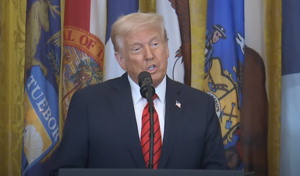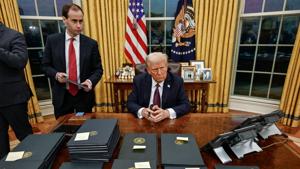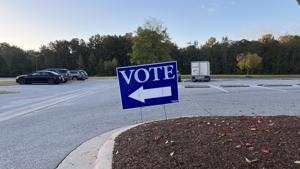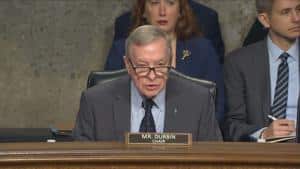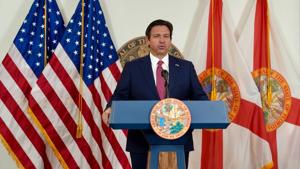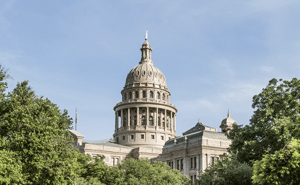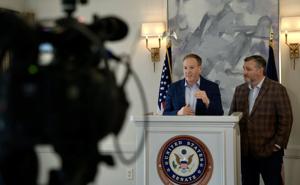(The Center Square) – The White House said Tuesday that President Donald Trump and his tariff team are preparing to roll out a “perfect deal” for Americans on Wednesday, when Trump is expected to announce his plans.
Trump plans to unveil reciprocal tariffs on Wednesday on all nations that put duties on U.S. imports, which the president has been calling “Liberation Day” for American trade. Trump’s plans have roiled U.S. and global markets, but the president has yet to get into specifics ahead of Wednesday’s planned announcement.
“The president said last night he has made a decision and a determination,” White House Press Secretary Karoline Leavitt said Tuesday. “He is going to announce that decision tomorrow.”
Leavitt said Trump was working with his trade and tariff team to finalize the deal, which she said would be a “perfect deal for the American people.”
The tariffs Trump is expected to announce Wednesday will go into effect immediately, Leavitt said.
House Speaker Mike Johnson, R-La., said Trump steered the U.S. economy to new heights in his term and plans to the same this time.
“You have to trust the president’s instincts on the economy. Why? This isn’t blind faith. Remember what he accomplished in the first administration. Before COVID, we had the greatest economy in the history of the world. Not the U.S, the whole world,” Johnson said. “Every demographic was doing better because we cut taxes, cut regulations and we made a better economic environment for everyone to succeed.”
Johnson said Trump’s proposed reciprocal tariff policy “is one that makes a lot of common sense.” Johnson said he ultimately expects other countries to reduce tariffs on American products
“This is a different world, it’s a much more integrated, complex economy. And the president’s absolutely right when he says we have to think about America’s interest first because if we don’t, we’re not going to maintain our status as the great super power,” Johnson said. “If we raise and match their tariff policy, I think ultimately what happens is you get back to a free trade agreement. These countries that engaged in this disparity – this raw deal for Americans for so long – it’ll get their attention and they’ll, I think, reduce their tariffs on us.”
Johnson said Trump’s plans for “Liberation Day” on April 2 could include challenges.
“It may be rocky in the beginning, but I think that this will make sense for Americans and it will help all Americans,” the House Speaker said.
U.S. Trade Representative Jamieson Greer said Trump’s tariff plan will help U.S. workers.
“No American President in modern history has recognized the wide-ranging and harmful foreign trade barriers American exporters face more than President Trump,” said Greer. “Under his leadership, this administration is working diligently to address these unfair and non-reciprocal practices, helping restore fairness and put hardworking American businesses and workers first in the global market.”
Last week, Trump announced a 25% tariff on imported automobiles, duties that he said would be “permanent.” The White House said it expects the auto tariffs on cars and light-duty trucks will generate up to $100 billion in federal revenue.
Trump said eventually he hopes to bring in $600 billion to $1 trillion in tariff revenue in the next year or two. Trump also said the tariffs would lead to a manufacturing boom in the U.S., with auto companies building new plants, expanding existing plants and adding jobs.
Trump predicts his protectionist trade policies will create jobs, make the nation rich and help reduce both trade deficits and the federal government’s persistent deficits.
The “Liberation Day” tariffs come after months of talk since Trump took office in January. On the campaign trail, Trump frequently called “tariff” the most beautiful word in the English language.
Some economists have predicted Trump’s tariffs could mean higher prices for U.S. consumers. The Budget Lab at Yale modeled a broad 20%, but noted “it is highly uncertain whether this is the policy that will be announced April 2.” The model suggests that prices would by 2.1% to 2.6% in the short run, the equivalent of an average per household consumer cost of $3,400 to 4,200 in 2024 dollars.
Leavitt said Tuesday that Trump’s tariff plan was long-term when asked how they could affect senior citizens living on a fixed income.
“Tomorrow’s announcement is to protect future generations of the senior citizens you mentioned,” she said. “It’s for their kids and their grandkids. To ensure that there are jobs here in the United States of America for their children to live the American dream.”
Last week, S&P Global said U.S. consumers could reduce spending in the near-term.
“We think Americans will soon pull back on purchases, dealing a blow to the world’s biggest economy, which is largely fueled by consumer spending,” the credit-rating agency said, noting a recession was possible in the next year.
Business groups, including the U.S. Chamber of Commerce and American Farm Bureau Federation, have urged Trump to back off tariff threats.
Trump has promised that his tariffs would shift the tax burden away from Americans and onto foreign countries, but tariffs are generally paid by the people who import the foreign products. Those importers then have a choice: Absorb the loss or pass it on to consumers through higher prices. The president also promised tariffs would make America “rich as hell.”
